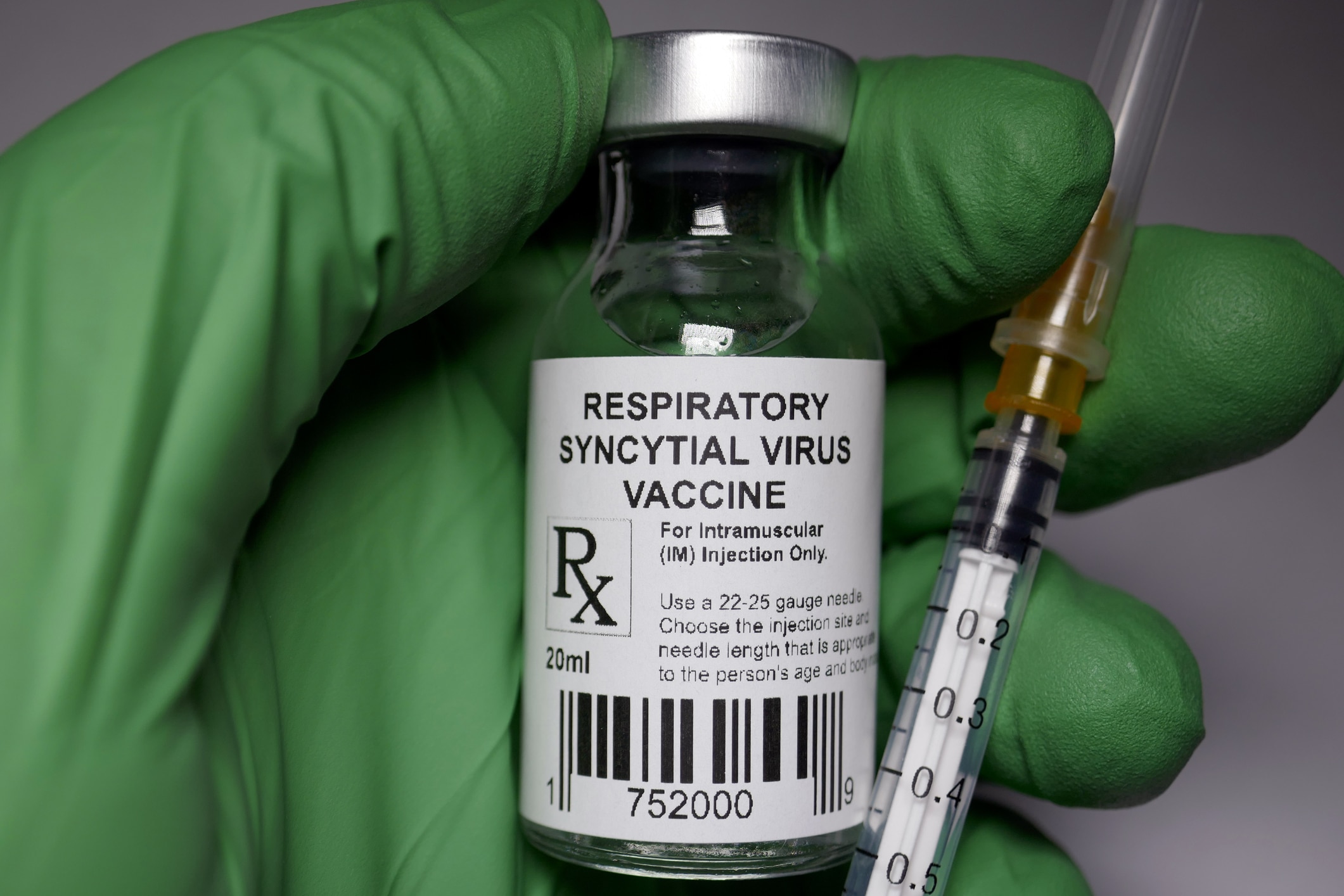TOPLINE
A panel of independent experts on Thursday recommended the Food and Drug Administration approve an RSV vaccine by Pfizer designed to protect babies by vaccinating pregnant parents, potentially paving the way for the first RSV shot for infants—weeks after the agency approved the country’s first shot for the common but potentially deadly infection.
KEY FACTS
The FDA panel voted unanimously (14-0) on the drug’s effectiveness, and 10 of the advisory board’s 14 members voted that the vaccine—known as Abrysvo—is safe, with some members flagging a slightly higher rate of preterm births among vaccine recipients.
RSV, which stands for respiratory syncytial virus, is a common respiratory infection that typically causes mild illness in healthy adults but can trigger severe, possibly fatal, disease in younger children, older adults and those with underlying medical issues.
As protective antibodies can be passed from mother to developing fetus, the maternal shot, given to pregnant people between 24 and 36 weeks of pregnancy, also protects children in their first months of life.
Evidence from Pfizer’s late stage clinical trial, which included nearly 7,400 pregnant people, indicated the shot was 82% effective at preventing severe disease for the first three months after birth and 69% for the first six months.
Loading...
The shot was also 51% effective at preventing doctor’s visits for RSV-related illness within the first six months of life, the trial found.
Safety data for the shot is also “generally favorable,” the FDA said in briefing documents released ahead of the meeting, with relatively standard side effects reported like injection site pain, muscle pain and headaches.
WHAT TO WATCH FOR
The FDA still has to approve the vaccine and a decision is likely still months away. The agency does not have to follow its advisors’ recommendations but it almost always does and the panel’s decision will carry considerable weight. Further down the line, Pfizer is also seeking FDA approval for its RSV shot to be used in older adults. A number of other companies are also in the process of completing late-stage trials for shots of their own and the FDA is in the process of reviewing an antibody injection to protect infants from RSV that is being jointly developed by European pharma heavyweights Sanofi and AstraZeneca. The European Union’s regulator, the European Medicines Agency, has already signed off on the preventative shot.
WHAT WE DON’T KNOW
From the analysis in its briefing, the FDA was keen to hear its advisors’ thoughts on the number of premature births observed in Pfizer’s trials. While the agency’s analysts note the overall incidence of preterm births in the trial—both for vaccine and placebo recipients—was lower than the background rates in all countries where the study was conducted, there was a slightly higher rate among vaccine recipients. This difference, 5.7% in vaccinated pregnant people versus 4.7% in the placebo group (the overall U.S. rate is around 10%), was not statistically significant and it is not clear whether the vaccine played a role. The issue is salient, however, and the prospect of preterm births will have already loomed large in the minds of the FDA’s advisors and officials after Pfizer’s rival GlaxoSmithKline (GSK) halted its own trials of a maternal RSV vaccine after noticing concerning early data involving preterm births and neonatal deaths.
NEWS PEG
The FDA approved an RSV shot from GSK in early May. The agency’s green light marked the culmination of decades of hard work from scientists and followed numerous setbacks. It also marked a major coup for GSK, whose shot, Arexvy, beat out stiff competition from an increasingly crowded field that includes the likes of Pfizer, Moderna and Johnson & Johnson. If approved, Pfizer’s shot will still mark an important milestone, however, as GSK’s vaccine is targeted towards older adults ages 60 and up.
KEY BACKGROUND
RSV is a very common respiratory virus and it infects almost all people by the time they are two years old. Healthy adults will typically experience nothing more than mild, cold-like symptoms like a runny nose, coughing and fever, according to the CDC, and barring any other health issues most will quickly and easily recover. Infection can be more deadly for other groups, however, most notably very young infants, older adults and people with conditions like weakened immune systems. In such people, RSV can be lethal. In young children in the U.S., complications from RSV kill between 100 and 300 young children every year and hospitalizes many more. The danger is particularly acute for very young infants, particularly in the first months and years of life, as inflammation and mucus triggered by the infection can be enough to block already small airways. In the U.S., RSV is a much more serious concern among older adults and is responsible for 14,000 deaths in people aged 65 years and over each year.
SURPRISING FACT
After malaria, RSV is the biggest killer of young infants worldwide. In 2017 the World Health Organization estimated RSV results in more than 3 million hospitalisations and nearly 60,000 deaths in children under five years old annually. Children under six months accounted for nearly half of this figure.
FURTHER READING
By Robert Hart, Forbes Staff
Loading...
